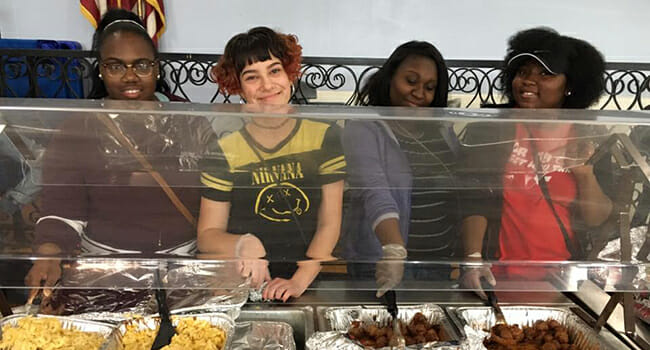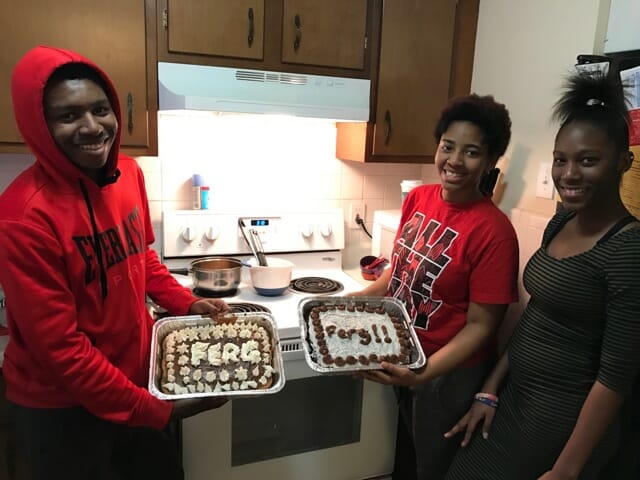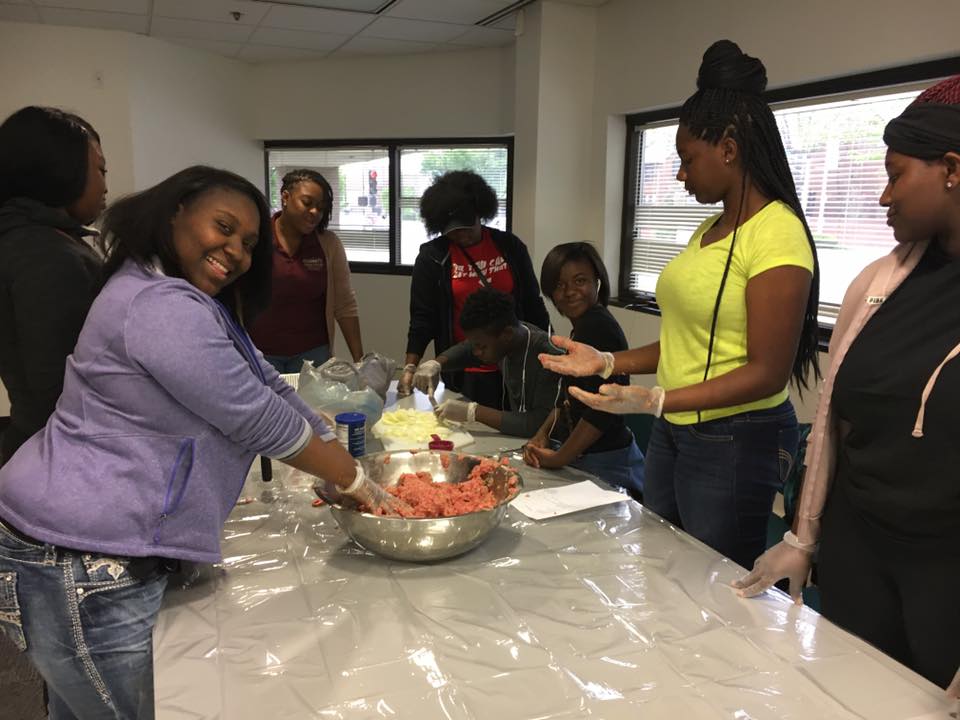Empowering Youth to Discover Their Potential to Create Change

In recent years, national leaders and community groups alike have called upon volunteers to help break down the income inequality gap by supporting disadvantaged youth and young adults. In response, organizations like United Way of Greater St. Louis, a Points of Light affiliate, have built and continue to maintain programs that support youth development – like Ready by 21, a community program designed to help young people grow, develop, and succeed.
United Way of Greater St. Louis is also a host site for ServiceWorks, a national program that engages youth in finding solutions to some of their community’s most pressing issues. Powered by the Citi Foundation, AmeriCorps and Points of Light, ServiceWorks uses structured volunteer service as the primary strategy to help low-income youth and young adults – called service scholars – in 13 cities across the United States develop the skills they need to prepare for college and careers.
Since becoming a host site for the ServiceWorks program in July 2014, United Way has engaged more than 690 young adults in service to their community.
Through service, participants in the program see that they are able to effect change in their communities, explained Mary Pryse, volunteer center manager at United Way. “The projects that we’ve done with them allow them to see that they can always give back – that they can always help other people.”

In St. Louis, ServiceWorks is operated through partnerships with various local high schools and community colleges, as well as local youth development organizations like the St. Louis Science Center’s Youth Exploring Science program, a STEM program that also has a life skills and service learning component. The partners provide the space for the program and United Way provides the programming and staffing.
While there are many factors to consider when building a program that works with such a diversity of partners, if you ask Mary, she would say the most important thing is flexibility.
“I think our success has come in our flexibility of allowing the program to meld to the needs of the different partners and allowing it to fit within what they’re already doing or what they want to do,” she said. In some cases, this has also meant adapting the program to be appropriate for older and younger audiences.
Nationwide, organizations that host the ServiceWorks program adapt the model to fit the specific needs of their community. In St. Louis, United Way focuses on five impact areas: financial stability, education, health, strong communities and basic needs, such as food and shelter.
Though the organization hosts events that support all of these causes, the adaptability of ServiceWorks has provided a more direct path for United Way to support community needs by helping prepare youth and young adults – the next generation of changemakers – for college, their careers and their lives.

Host sites implement the ServiceWorks program with the help of AmeriCorps VISTA members and volunteers, who help lead workshops and facilitate the planning of service projects that are carried out by the service scholars. At the United Way of Greater St. Louis, programming is managed by AmeriCorps VISTA Lisa Cohn.
Recently, Lisa coordinated a project at Lift for Life Academy in St. Louis where the service scholars, frustrated by the underrepresentation of African Americans in popular children’s books, decided to make a change. Using a website called Story Jumper, they wrote their own books featuring African American protagonists and communicating important messages they found missing in existing children’s literature.
The scholars took their books to a local elementary school and read aloud to the students there. By sharing their creativity and using artistic expression as a response to exclusion, they saw first-hand their power to effect change.
“Not only are we teaching youth stuff, but we’re also empowering them to become leaders in their communities – showing them that they have skills that are necessary for the world,” said Lisa.
The focus of each service project is up to the scholars, allowing them to address community needs in a variety of ways. The ServiceWorks program demonstrates the power of service as a strategy to empower youth and young adults, helping them develop skills to become changemakers and realize their full potential.
“Our mission as an organization is to help people live their best possible lives and we believe that there are many different ways to do that,” said Mary. “ServiceWorks has allowed us to continue to help people in a more direct way by bringing this programming to some of our agencies, but also our community partners and the community as a whole.”
